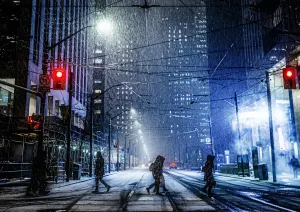
3 things you'll want to know with fall arriving this weekend
Ready or not, the fall season arrives this weekend, and there's a few important things you'll want to keep in mind as we move into the autumn months
We will officially welcome the fall season this weekend, which will actually mark the earliest Fall Equinox in over two centuries!
Despite the more obvious signs of the changing seasons like falling leaves, and pumpkin spice everything, there's a few important things to keep in mind as we transition out of the summer months.
RELATED: Sunday marks the earliest start to the Fall season in 228 years! Here's why
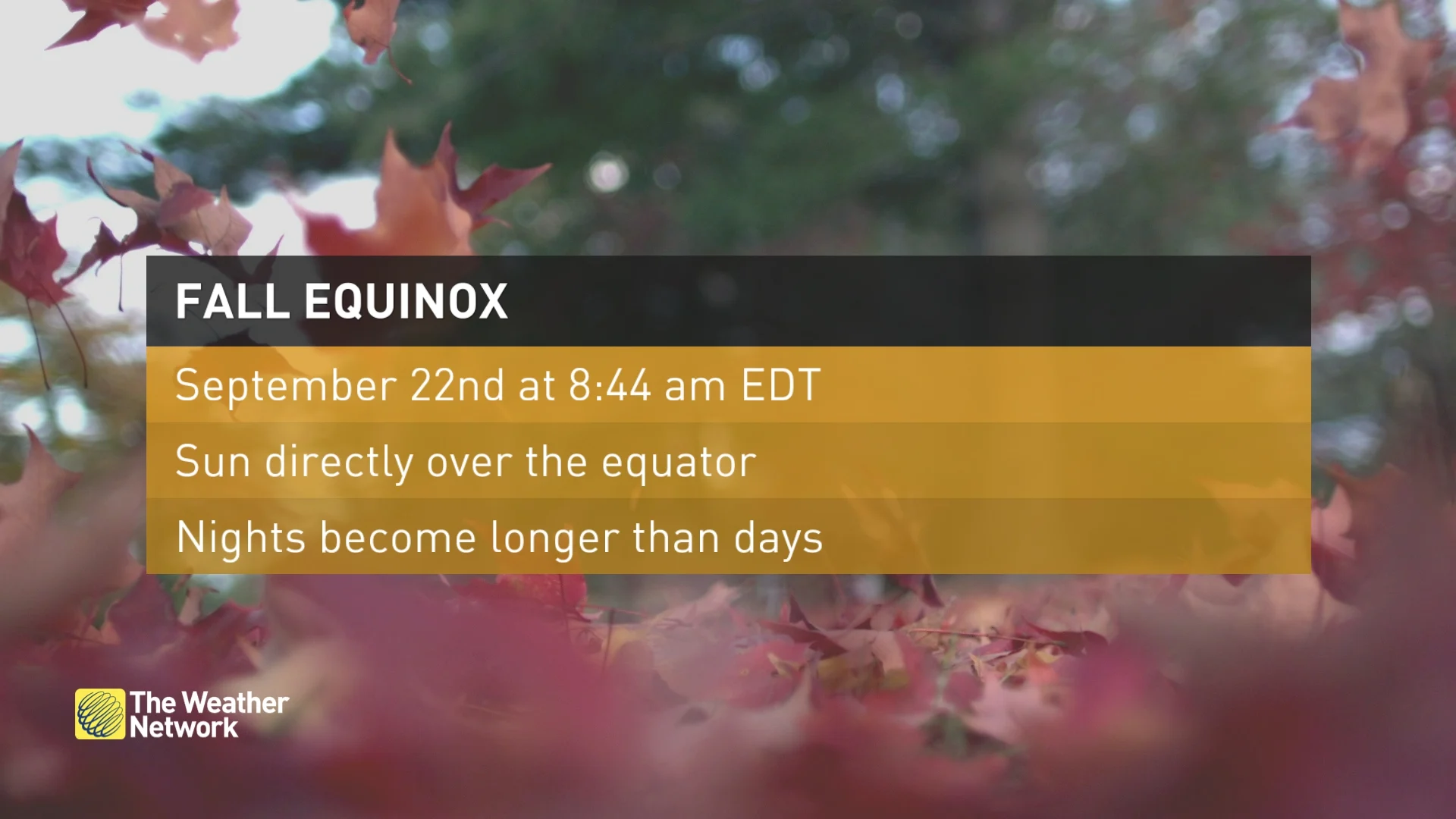
Daylight hours decrease
From the first day of fall to the first day of winter, the amount of daylight hours drops from 12 hours and eight minutes, to just nine hours and 27 minutes.
It's certainly the time of year when we notice mornings and nights getting much darker.
SEE ALSO: Why daylight hours take a considerable nosedive in September
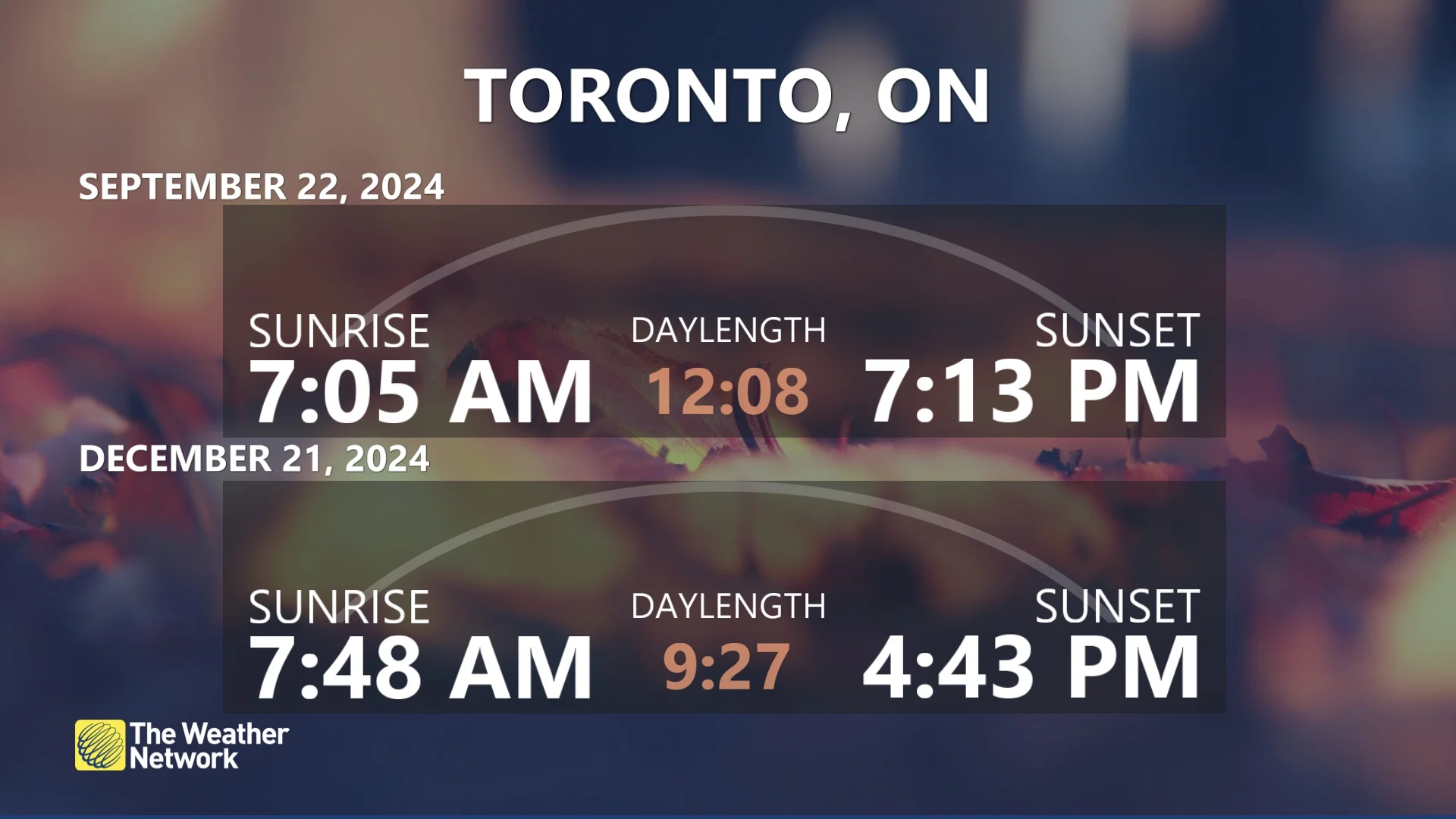
Clocks fall back
The fall season also marks the twice-annual time change, with clocks set to fall back at 2 a.m. local time on Sunday, November 3. Daylight Saving Time (DST) is observed in all of Canada with some exceptions, including most of Saskatchewan.
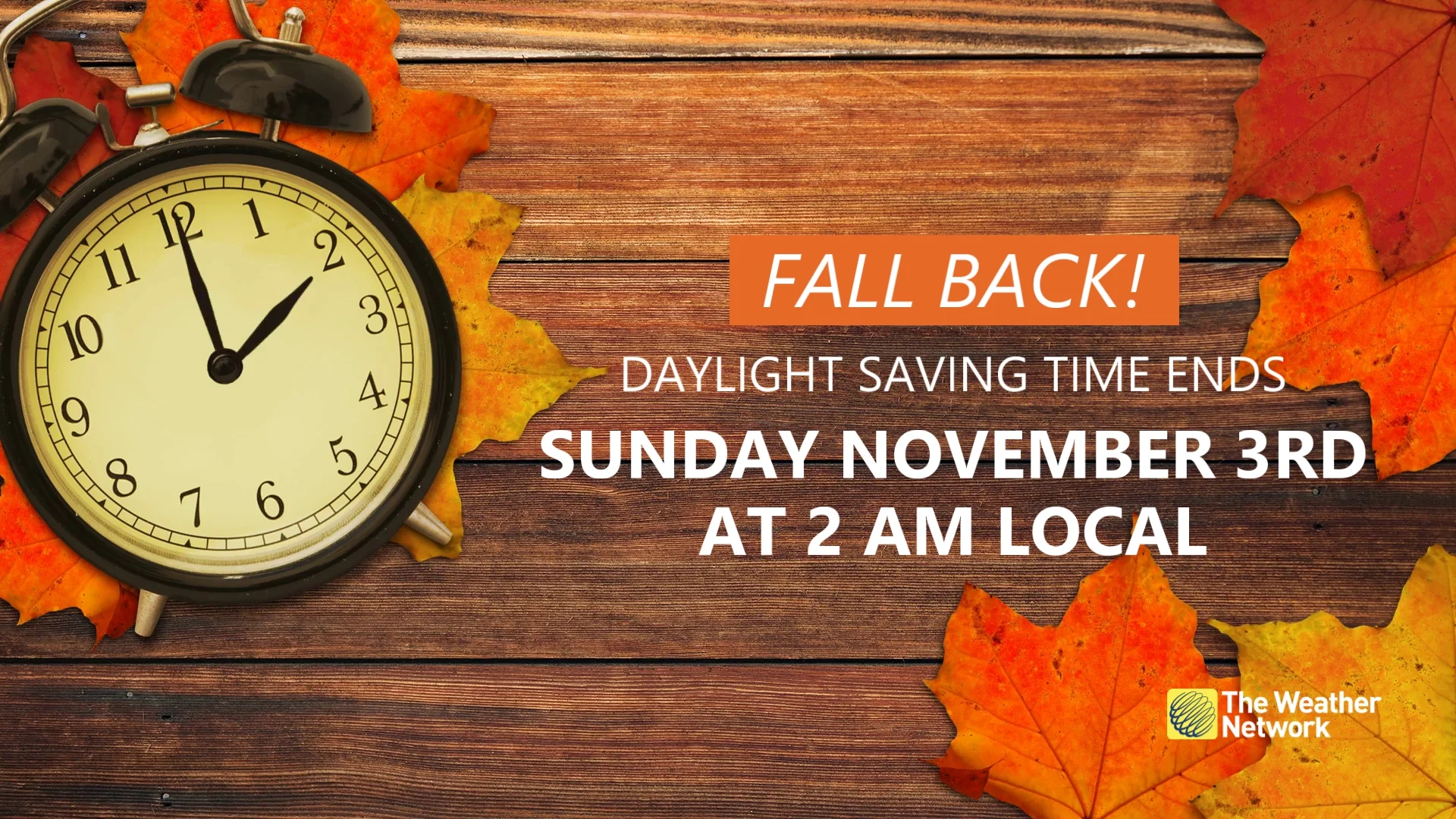
The idea behind DST is to maximize the amount of sunlight we see throughout the day, though the switchover isn't universally popular. Among the potential drawbacks to pushing the clocks back 60 minutes, include depression, as the decreased hours of daylight are difficult to manage for many, and a loss of natural vitamin D due to the drop in the amount of available sunlight through the winter.
Bundle up, the average high temperatures fall quickly
We know the fall season is a transitional one as we approach the winter months, and with the looming frosty season ahead comes a major loss in average daytime highs. In some places, the drop is significant.
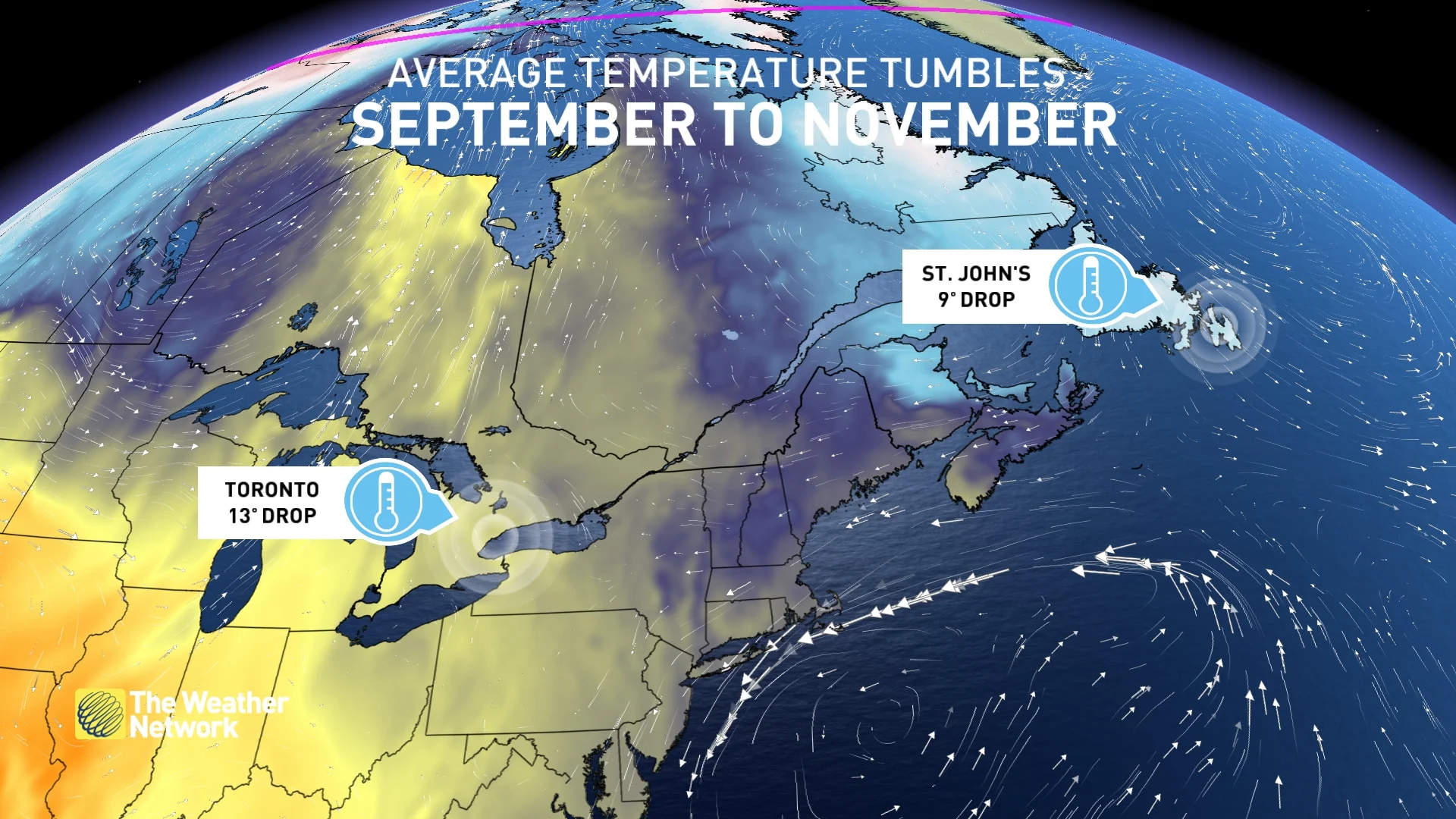
In Edmonton, Alta. for example, the city will lose as much as 16°C between just September and November. The daytime high in September is 10°C versus a chilly -5.2°C by November.
Meanwhile, Toronto, Ont. falls by 13°C, while St. John's, NL takes an almost 10-degree hit.
Reality check: Winter is coming...
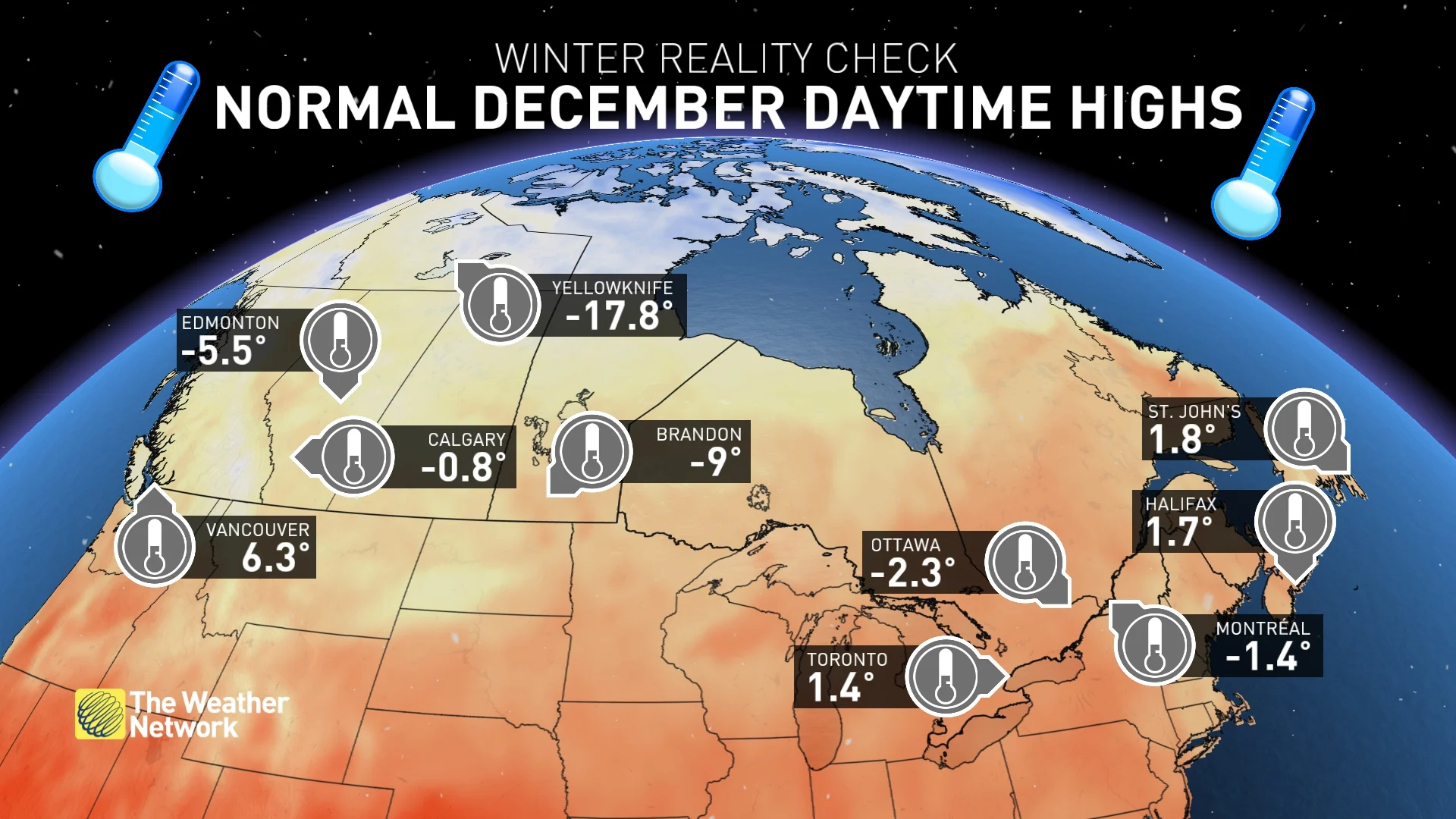
For more on the changing seasons and what to expect in the months ahead, watch the video with meteorologist Nicole Karkic, above.








